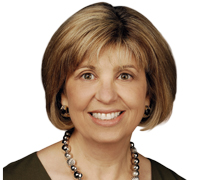As a young leader, I was concerned about earning the respect of direct reports who were, in most cases, more experienced than me. As my career progressed, I found myself in positions of increasing responsibility and scope and was asked to lead functions that were not necessarily my core competency. I would find myself thinking I might not have what was needed to succeed. Over time, I learned that my concerns about my age, gender, and subject matter expertise were misplaced and counterproductive. I became confident in my ability to ask questions, learn quickly, and solve problems. I learned that it is possible to be both gracious and decisive.
With each new opportunity, I shared my strengths with my colleagues and built high-performing, diverse teams that possessed competencies I did not have. I built strategic partnerships and asked for help from trusted advisors. I learned that, as Max De Pree writes in Leadership Is An Art, “leadership comes from abandoning oneself to the strengths of others while shaping a compelling vision for the future.” I learned to have fun at work and that I could not (and should not) do everything myself. I developed a support structure to help me manage my professional life, personal life, the needs of my family, my commitments to the community, and my health. I rely on my faith in times of extreme stress or difficulty. I know that I am here for a purpose and have the strength I need if I remain focused on doing the right things.
As a now-mature leader, I find myself energized by the prospects of what is possible. I no longer worry about not succeeding; I know that anything worth doing can be achieved. I find great joy in teaching others and in watching future leaders be successful. I can’t wait to see what comes next.
How has education affected your career?
A successful career requires continuous learning and critical thinking. A proper education prepares you to be a lifelong learner. I am thankful that my education afforded me the ability to learn to read and write well, communicate effectively, and solve complex problems in collaboration with others. These skills continue to serve me well every day.
Is there a role model who has had a profound impact on your career and/or life? What did he/she motivate you to do?
I am a beneficiary of the accomplishments of many successful women over the years, including those of former Sprint executive Karen Krepps (Mailliard), who was one of my earliest mentors. Because of leaders like Karen, women today have an opportunity to not only succeed, but have a greater impact on their professions and in their communities. With opportunity comes responsibility. Karen reminded me to consistently deliver results, exercise influence, take on difficult challenges, and actively mentor others. I endeavor to do these every day. She motivated me with much encouragement, and often with stern feedback!







